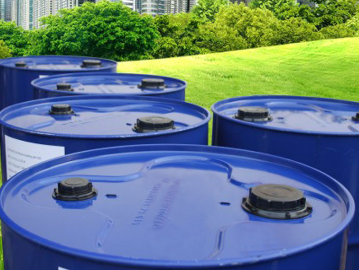
Polyurethane sealant is a popular choice for protecting various surfaces due to its durability and resistance to moisture, chemicals, and abrasions. Applying polyurethane sealant effectively requires some preparation and technique. Here are some quick and easy tips to help you achieve a successful application:
1. Clean and Prepare the Surface:
Before applying any sealant, it is crucial to clean the surface thoroughly to remove any dirt, dust, grease, or old sealant residue. Use a mild detergent or cleaner and a brush or sponge to scrub the surface. Rinse it with water and allow it to dry completely before proceeding.
2. Sand the Surface:
For optimal adhesion, it is recommended to lightly sand the surface before applying the polyurethane sealant. This will help remove imperfections and create a rough texture that the sealant can bond to. Use fine-grit sandpaper and sand in a circular motion until the surface feels smooth and free from any glossy finish.
3. Protect Surrounding Areas:
Polyurethane sealant can be messy and difficult to remove once it dries, so it's important to protect any areas adjacent to the one you're working on. Cover nearby surfaces with plastic or painter's tape to avoid any accidental spills or smudges.
4. Choose the Right Applicator:
The choice of applicator can influence the overall outcome of the application. For small areas or intricate spaces, a brush or foam brush can provide better control and precise coverage. For larger surfaces, consider using a high-quality roller or spray gun to achieve a smooth and even finish.
5. Apply Thin Layers:
It is best to apply polyurethane sealant in multiple thin layers rather than in one thick coat. This allows for better adhesion and helps prevent bubbling or excessive drying time. Use a light touch when applying the sealant, spreading it evenly without overloading the surface. Avoid pushing or dragging the applicator too hard, as this may cause streaks or uneven coverage.
6. Allow Proper Drying Time:
Polyurethane sealant requires adequate drying time between each coat. Read the manufacturer's instructions to determine the recommended drying time. Generally, it takes around 2-4 hours for the first layer to dry before applying another coat. Avoid rushing the process by applying another coat before the previous one is fully cured.
7. Sand Between Coats:
To achieve a smooth and flawless finish, lightly sand the surface between each coat of sealant. This helps remove any imperfections, bubbles, or rough areas that may have formed during the application process. Use fine-grit sandpaper and be gentle to avoid scratching or damaging the sealant.
8. Apply a Top Coat:
For increased protection and longevity, consider applying a top coat over the polyurethane sealant. A clear polyurethane or acrylic top coat can provide an extra layer of durability and enhance the appearance of the sealed surface. Follow the same application process as for the sealant, ensuring proper drying time between each coat.
9. Clean Up Properly:
Polyurethane sealant is typically solvent-based, which means it can be challenging to clean up after the application. Use mineral spirits or an appropriate solvent recommended by the manufacturer to clean brushes, rollers, and other application tools. Dispose of any leftover sealant or solvents according to local regulations.
10. Follow Safety Precautions:
When working with polyurethane sealant, it is essential to follow proper safety precautions. Wear protective gloves, safety goggles, and a mask to avoid skin contact and inhalation of fumes. Work in a well-ventilated area to minimize exposure to fumes and only use sealants according to the manufacturer's instructions.
By following these quick and easy tips, you can apply polyurethane sealant effectively and achieve a professional-looking finish. Remember to take your time, be patient, and follow the recommended drying and curing times for the best results.